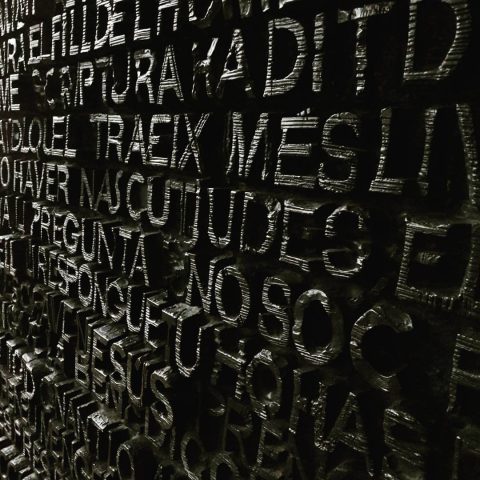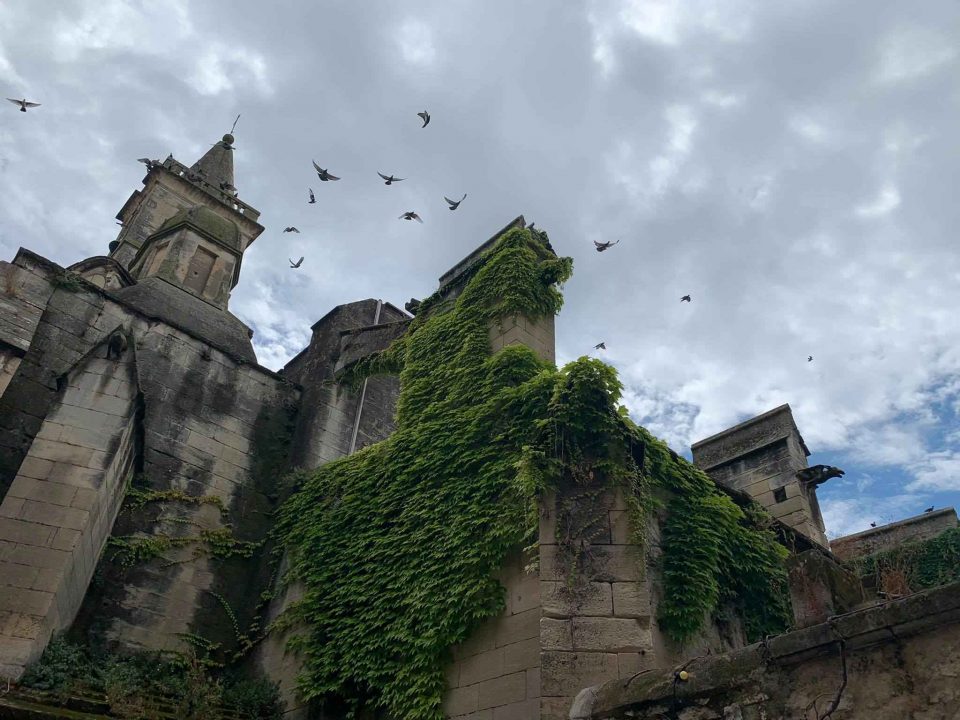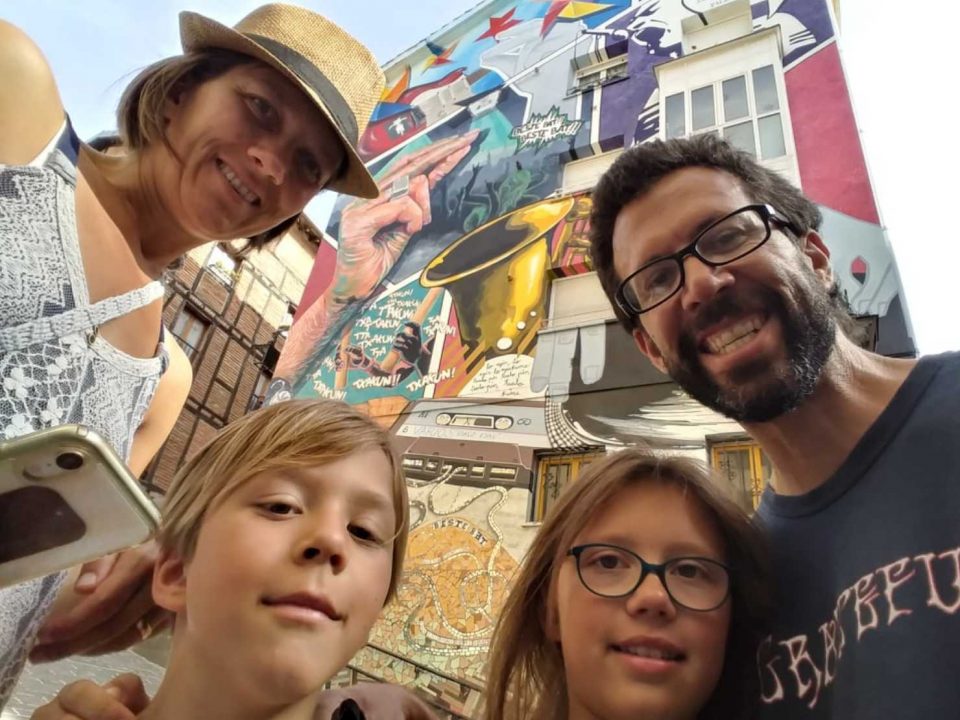
Hidden Gems: 4 Cryptic Myths Concealed in Barcelona’s Sagrada Familia
December 2, 2016Viva la diferencia: Spanish Culture Clash
December 8, 2016It’s been almost two months in the Pyrenees, and we are already settling in like a family of mollusks atop a bed of seafood paella. Which is just a fancy way of saying that we have gotten too comfortable here to go anywhere else. Spanish immersion is in full effect. The weather is perpetually sunny, the camaraderie is always amiable, and the trabajo is nearly non-existent.
My wife is busy actually creating a new website for our current WorkAway hosts, and I figure that’s ordinarily about a $2000 job, so I’ve taken the liberty of assigning myself a little time off. No more stirring up bag after bag of cement mix or chiseling 100-year-old plaster off the ceilings of half-timbered houses. Instead, I’m concentrating on what I do best: leafing through 19th century gothic fiction and drinking cheap vino tinto by the boxful.
Meanwhile, my recipe for Spanish omelettes gets better every day, as does my appetite for french pastries—still readily available in this border region. And when I’m not entirely absorbed in these projects, I devote a part of my time to improving my Spanish vocabulary.
Unlike German, the Spanish feels almost second nature to me. Consider, I was born in Mission Viejo, spent the first half of my childhood living off of Paseo de Valencia, attending Barcelona elementary school, and the second half in a community called Mallorca, at the corner of Marguerite and Vista del Lago, attending high school on the outskirts of San Juan Capistrano, spending the weekends in El Toro. I then attended college in the Ciudad de los Angeles, and later relocated to a place called San Luis Obispo, where I often headed out to Los Osos to feast my ojos on Montaña de Oro.
I could go on and on. I spent most of my life using public restrooms and reading signs that said “Lava Las Manos.” Only very recently were all these signs replaced, when it came to public attention that this ubiquitous phrase was not entirely correct. As grammatically improper as the name of my place of birth.
As much as I love to nitpick over proper grammatical usage, I’m hardly qualified to do so in Spanish. Our current host, Hugh, has taken it upon himself to give us some foreign language tutoring. We all need a little extra homeschooling sometimes. But between his mumbling and his near deafness, and my inability to hablo the lingo, the conversation does not always go well. Sometimes we are joined by the groundskeeper who lives in the main hotel and the hermit who lives in a tent behind the hotel.
Here’s a sample of some Spanish immersion, translated into English, to give you some idea.
Hermit: Have you seen Hugo?
Me: . . .
Hermit: Where. Is. Hugh.
Me: Yes. Here. Not here? I doesn’t know. Possibility of the bathroom.
Hermit: And the dog.
Me: Yes but no dog today.
Me: Can you like the bread?
Hermit: No thanks. I have plenty of bread. Did you bake it yourself?
Me: Yes but no today. This one I here bread. This one is pandemonium. Um, laundromat? Uh, bakery.
Hermit: Yes, bakery. So you’re the American?
After such demanding dialogue, I find it relaxing to go outdoors and chase my children. One of our favorite diversions is to re-enact scenes from the legend of Saint George. (Saint George, you may not realize, is the patron saint of Catalonia.) Pedaling across the lawns and terraces on our two-wheeling steeds, I like to play the part of Saint George, rescuing my daughter, the princess, from the cave next to the swimming pool below the sycamore trees.
Sometimes my son helps out in the role of Drac, the dragon. At the moment, however, his hair-do bears a much stronger resemblance to He-Man. But he’s not such a bad hombre, I think he’s just sorta recovering from the el niño effect.
FURTHER READING: For more entertaining tales of cultural assimilation, check out some of the following articles.






2 Comments
Crackin me up!!!!!
Put the haha in your hola!